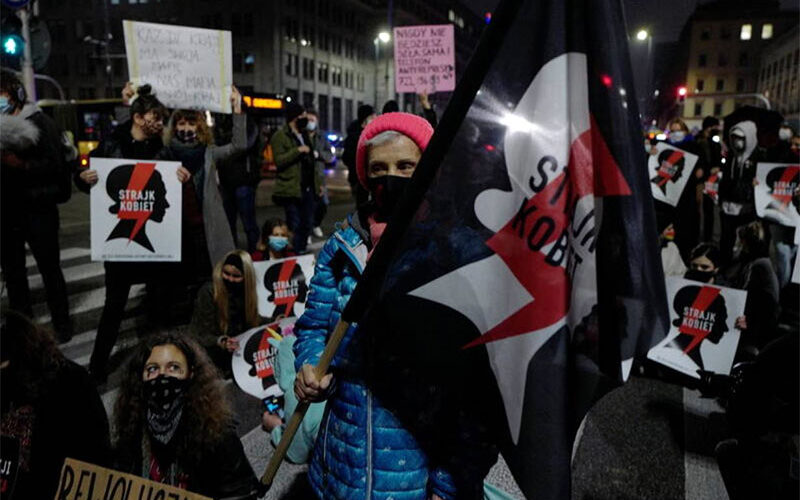SOPHIE DAVIES
POLAND’S decision to ban most abortions in the face of mass protest is emboldening like-minded neighbours, campaigners say, predicting a retreat on women’s rights across eastern Europe.
The October 22 ruling outlaws any termination due to foetal defects, ending one of the few remaining grounds for a legal abortion in Poland and sparking two weeks of demonstrations.
It has also stirred interest among like-minded neighbours of largely Catholic, conservative Poland, campaigners say, voicing fears of a knock-on effect for millions of women in Hungary, Bulgaria, Slovakia, Belarus and Romania.
“Behind these latest moves, lies a profound contempt for the rights of women… that does not limit to Poland. Other countries, including neighbouring countries, follow a similar agenda,” said Monica Costa, a senior campaigner at Amnesty International.
The ruling was due to come into force across Poland by this week but a government spokesman now says the nation needs a period of calm before its implementation.
Some politicans say the delay reflects a lack of backing for the ban as younger, urban Poles take to the streets to voice their opposition. Campaigners say Warsaw is just buying time in the hope protests die down and that it is unlikely to back off.
“This message may resonate among other politicians in the region pursuing similar agendas when it comes to women’s rights, including in Slovakia or Hungary,” said Costa.
Nor is the anti-abortion drive limited to the former East bloc, which has seen a resurgence in religious values and social conservatism post-communism.
In October, 33 nations signed an international accord that critics say aims to restrict abortion access worldwide.
The Geneva Consensus Declaration was co-sponsored by the United States, Brazil, Uganda, Egypt, Hungary and Indonesia. In Europe, the other two signatories were Poland and Belarus.
Signatories say that there is no right to abortion, nor any international obligation for states to organise or pay for it.
And activists fear any crackdown on women’s reproductive rights could also increase the oppression of sexual minorities.
“This is a problem for all of us. If we let this happen in Poland, it could be just the start,” said Irene Donadio of the International Planned Parenthood Federation European Network, a global NGO.
She said the measure, taken in the second wave of the COVID-19 pandemic with restrictions to democracy already rife, could spur a crackdown on women and minority rights globally.
ROLLBACK ON RIGHTS
Costa said Poland’s conservative ruling party had been rolling back women’s rights for years, most recently by threatening to pull out of the Istanbul Convention, a European treaty aimed at preventing violence against women.
In 2018, Bulgaria said the convention was incompatible with its constitution, and has since made several attempts to restrict abortions, she said, and fall into line with Poland.
In May, the Hungarian parliament failed to endorse the Istanbul Convention, rejecting its references to gender.
Governments in the region are anti-abortion partly because of low birth rates, plus their conservative agenda is boosted by funding from the United States, said Marge Berer, coordinator of the International Campaign for Women’s Right to Safe Abortion.
“The anti-abortion movement across the region has been hugely funded with U.S. money from the (Donald) Trump administration,” she said.
“If that money were to dry up, this issue would go away because I don’t think it’s supported by any of the populations across Eastern Europe.”
When Eastern European countries were part of the East bloc, there was little contraception but ready access to abortion, she said, highlighting the volte face.
“Poland, when it was part of the Soviet bloc, was a place where other women went for abortions…for a whole generation of older women this was just normal,” she said. – Thomson Reuters Foundation.














